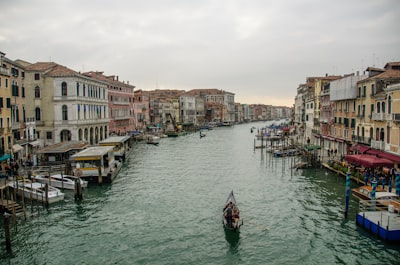Venice vs. Vanity: When Local Voices Outshine Billionaire Spectacle
The recent twist in Jeff Bezos’s multi-million-dollar Venetian wedding plans, forced by a groundswell of protest, is more than just celebrity tabloid fodder—it’s a telling snapshot of a city (and a world) grappling with the consequences of unchecked wealth, overtourism, and local resistance.
The Players and the Place
Jeff Bezos, Amazon’s founder and one of the richest people alive, symbolizes the global billionaire class—a jet-setting elite for whom historic cities like Venice make attractive backdrops for lavish celebrations.
Venice, by contrast, is a living monument, struggling daily with the incursions of tourism, environmental fragility, and economic imbalance.
Venetian protestors—local activists, residents, and cultural guardians—represent the heartbeat of a community fighting to retain identity, dignity, and agency in the face of commodification.
Why This Venue Change Is a Flashpoint
Bezos's original wedding venue, the opulent La Fenice opera house, would have meant locking out the public, rerouting daily life, and straining municipal services for a private event tailored to the ultra-wealthy. Local activists, however, drew a line: enough is enough.
Key Arguments at a Glance
| Group/Stakeholder | Position/Interest | Core Arguments & Concerns |
|---|---|---|
| Local Residents | Limit billionaire takeovers | Fear of Venice becoming a billionaire theme park; erosion of civic space |
| Protestors | Reclaim city for residents | "Not everything is for sale," rallying cry; urge for respect and inclusion |
| Billionaires | Seek unique, exclusive experiences | Willing to pay, may dismiss impact as minor |
| City Officials | Often caught between money and protest | Economic incentive vs. voter backlash |
“Enormous Victory”—Why It Resonates
By forcing a change of venue, protestors not only disrupted a high-profile event but also sent an international signal: Venetian society is not simply for sale. Claiming an “enormous victory,” they have reclaimed a measure of control over who gets to shape the city’s public spaces.
This victory isn’t just symbolic. It reflects a rising trend of grassroots pushback—from Barcelona to Amsterdam—against the excesses of luxury tourism and elite privilege. These clashes are about more than inconvenience; they’re struggles over the future of cities.
Societal Dilemmas and Broader Impacts
- Contested Identity: Old cities stand at a crossroads, tempted by fast cash from celebrity events, but risking the alienation of those who actually live there.
- Social Justice vs. Economic Windfall: Allowing billionaire takeovers may infuse funds, but at what cost to public well-being and heritage?
- Example for Others: Venice’s action may inspire other communities, emboldening local voices to resist deals that prioritize spectacle over substance.
Surprisingly, despite his immense influence, Bezos was forced to adapt—a rare moment of the global wealthy capitulating even slightly to civic will.
Why It Matters
As the world’s most storied cities are repackaged as billionaire playgrounds, the Venice protest may be an inflection point: a reminder that local agency still matters, and that cultural heritage cannot simply be leased to the highest bidder. For Venice, the message to Bezos—and those like him—is clear: reverence for the local trumps the right to flaunt wealth, at least for a day.
This article was inspired by the headline: 'Bezos wedding: Venice protestors claim 'enormous victory' after venue change - BBC'.

Comments
No comments yet. Be the first to comment!